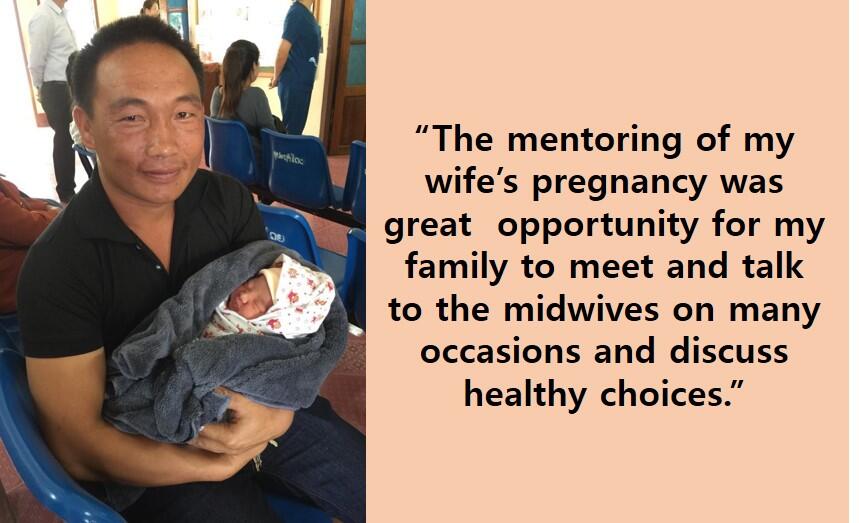The article linked to "Building strong Family Planning programmes in Lao PDR: investing in midwives, commodities and behaviour change (1)"
The big returns of investments on advocacy and communication
Next to the huge investments on the human task force, a promising change is happening thanks to joint efforts for the availability of family planning commodities. UNFPA has supported the provision of a variety of contraceptives choices in the supplies. As a result, Lao PDR Government increased its budget on family planning from 3.5 to 31%.
Midwives counselling services are fruitful: as an example, women are showing acceptance to implants as a family planning method. “They like implants because of the long duration of effectiveness. It means less travelling for them,” she explained.
Another example is the change in mentality to bring men into a positive involvement for informed choices on contraception and pregnancy planning. The various counselling sessions that UNFPA and its partner are organizing regularly at clinics, but also in the villages and in remote areas gather groups of men and women and equally sensitize them on sexual and reproductive health. UNFPA is also mobilizing local leaders and chiefs of villages to increase the influence on men and boys. In a qualitative survey led by UNFPA for its program review, when interviewed, the chiefs of villages expressed their satisfaction with UNFPA projects, especially those targeting adolescent girls and empowering them through life skills.
At the Xiangkhouang provincial hospital, with the COVID-19 lockdown over, we meet a proud father waiting with his one-day-old baby girl, while his wife availed of family planning services. “This is my third child and I am ready to have no more children. The mentoring of my wife’s pregnancy was an opportunity for us to meet and talk to the midwives on many occasions and discuss healthy choices,” he said, demonstrating a positive attitude to reproductive health and supporting his wife. Engaging men and boys is a growing piece of the UNFPA response to Sexual and reproductive health in Laos.
To ensure women access all support and care regarding sexual and reproductive health, contraception, pre and post-partum care, engaging men helps to reduce barriers for family planning. They participate in the informed choices, they accompany women to the facilities, afford financial resources so that women can move easily and accept to use themselves the methods of contraception as well as participate in the counselling sessions. Midwives are the key for such a change, as they access communities, sensitize them, and encourage them to seek and use family planning services and care.
Leaving no one behind
UNFPA will continue to support the Ministry of Health on increasing the numbers of competent midwives including from the ethnic groups. As gender discrimination remains the root cause for the left-behind communities to access essential reproductive health and family planning services, it is important to support community dialogue and build on positive examples of male engagement to empower women and girls to be part of the decision regarding their health and choices in life.
For more information, please visit www.lao.unfpa.org


